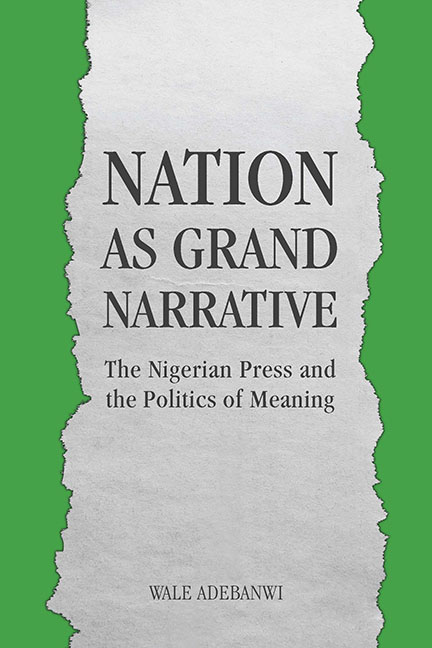Book contents
- Frontmatter
- Dedication
- Contents
- List of Illustrations
- Acknowledgments
- Part I Contextual and Conceptual Perspectives
- 1 Nation as Grand Narrative
- 2 Interpretive Theory, Narrative, and the Politics of Meaning
- Part II Colonial Agency and Counterhegemonic Struggles
- Part III Inclusion, Exclusion, and Democratic Contestations
- Part VI Domination and Resistance in Majority-Minority Relations
- Conclusion: Beyond Grand Narratives
- Notes
- Bibliography
- Index
2 - Interpretive Theory, Narrative, and the Politics of Meaning
from Part I - Contextual and Conceptual Perspectives
Published online by Cambridge University Press: 16 February 2018
- Frontmatter
- Dedication
- Contents
- List of Illustrations
- Acknowledgments
- Part I Contextual and Conceptual Perspectives
- 1 Nation as Grand Narrative
- 2 Interpretive Theory, Narrative, and the Politics of Meaning
- Part II Colonial Agency and Counterhegemonic Struggles
- Part III Inclusion, Exclusion, and Democratic Contestations
- Part VI Domination and Resistance in Majority-Minority Relations
- Conclusion: Beyond Grand Narratives
- Notes
- Bibliography
- Index
Summary
The social sciences have been concerned for many decades with fundamental questions concerning the nature of social life and its investigation. Whereas some of these concerns, and the debates they have generated, have been geared toward resolving ontological and epistemological dilemmas, others have focused on methodological challenges of the process of social enquiry. This concern forms my examination of the hermeneutical analysis of social phenomenon such as the narratives about the idea and practices of the “nation.” Using interpretive theory, or hermeneutics, this chapter explores how interpreting ideology as “meaning in the service of power” illuminates the analysis of media narratives in the African postcolony.
Interpretive Theory and the Hermeneutics of Political Life
Interpretive theory directly challenges the positivist approach to social and political inquiry. Many interpretive theorists and philosophers whose departure point is hermeneutical, including Alfred Schutz, Husserl, Wittgenstein, Heidegger, Dilthey, Gadamer, Peter Winch, Habermas, Ricoeur, Michael Gibbons, and others, raise critical issues with the positivist approach. They argue, for example, that the positivist view demeans the relationship between social and political life and the language that is embedded in them. An empiricist approach assumes that political life is not connected to the language used to appropriate it; therefore, the reality of political life exists independently of the language of the polity. Contrary to this view, interpretive theorists contend that language is constituted by and expressive of the particular political life from which the language draws its essence and logic. As Charles Taylor writes, political practices “cannot be identified in abstraction from the language we use to describe them,or invoke them, or carry them out…. The situation we have here is one in which the vocabularyof a given social dimension is grounded in the shape of social practices in this dimension; thatis, the vocabulary wouldn't make sense, couldn't be applied seriously, where the range of practices couldn't exist without the prevalence of this or some related vocabulary…. The language is constitutive of reality, is essential to being the kind of reality it is.”
Interpretive theorists argue that the empiricist approach assumes a disjuncture between political life and its language and therefore downplays, as Gibbons writes, “the internal connections between socialand political life and the language that is embedded in it.”
- Type
- Chapter
- Information
- Nation as Grand NarrativeThe Nigerian Press and the Politics of Meaning, pp. 30 - 44Publisher: Boydell & BrewerPrint publication year: 2016

